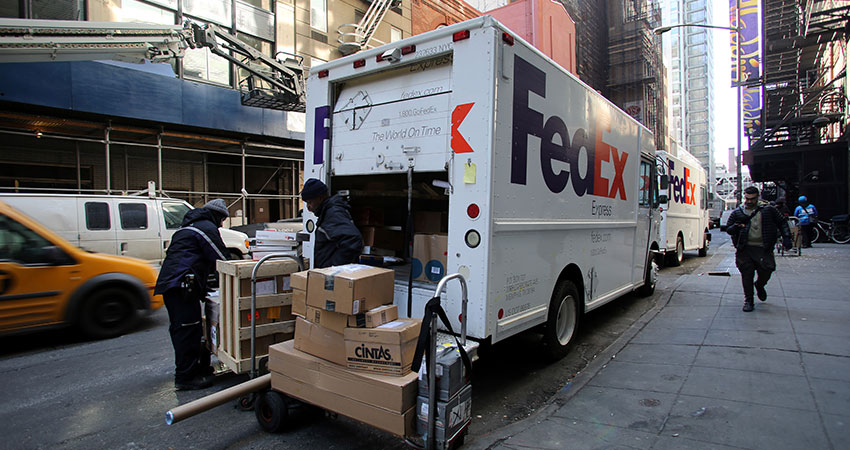FedEx has added on yet another surcharge, this time a 30 cent per package peak residential delivery charge for shippers who hand off an average of 30,000 packages weekly between Jan. 4-31 between FedEx Express, Ground and SmartPost, effective Feb. 15 and again until further notice.
While volume combined for all these services determines who will be hit with the new peak surcharge, it will apply to Ground and Express shipments but not to those using SmartPost or FedEx One Rate.
“FedEx continues to keep commerce moving and delivering critical shipments during the COVID-19 pandemic,” the company said in explaining in a Jan. 15 update. “The impact of the virus continues to generate elevated volumes, and we continue to experience high demand for capacity and increased operating costs across our network.”
The carrier restated that the previously announced peak surcharge for SmartPost services, unusually extended beyond the holidays, remains in effect as well, adding the new surcharge is in addition to the standard residential delivery charge.
“Any contracted discount or cap the customer may have on the Residential Delivery Charge will not apply to the Peak — Residential Delivery Charge,” FedEx said in explaining the new fee. “For invoicing purposes, this charge will be combined with the customer’s current Residential Delivery Charge.”
FedEx’s stock took a hit on the news, according to MarketWatch, and has fallen 10.4% in the past three months, compared to an 8.5% drop for rival UPS. During that same time the Dow’s transportation index has gained 7.6% while the overall DJIA is up 8.3%.
In December, FedEx announced that various delivery surcharges were being extended to Jan. 17, then lowered from seasonal levels as of Jan. 18 and until further notice.
While FedEx and UPS describe the various surcharges as the necessary cost of doing business during a period of unprecedented demand for ecommerce delivery, some industry observers – including former executives from both firms – invariably say it’s a profit-taking exercise. Smaller shippers without volume leverage are hit especially hard.

